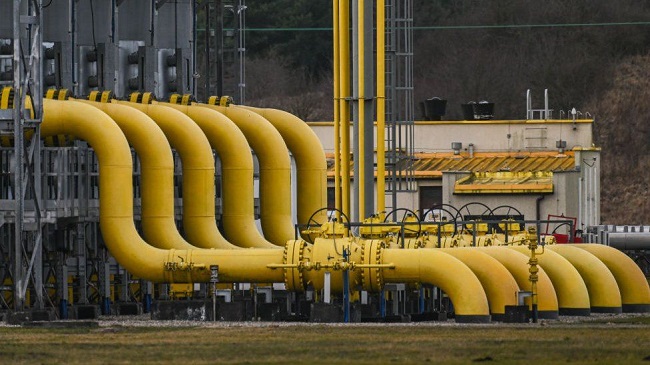The Gas Exporting Countries Forum (GECF) says Africa’s natural gas consumption will hit 183 billion cubic meters (bcm), marking a three per cent year-on-year (y-o-y) increase.

The GECF says Africa’s gas consumption is expected to grow by four per cent, fuelled by ongoing industrialisation, increased demand in the power sector, and the expansion of Liquefied Natural Gas (LNG).
The forum made this known on Tuesday, April 15, in its 2025 Annual Gas Market Report (AGMR).
The report said Algeria and Egypt, representing together over 60 per cent of the regional market, were the primary drivers of this growth, with demand fuelled by the industrial and electricity sectors.
According to the report, Nigeria also contributed significantly, particularly through its expanding gas-to-power projects.
It said the power sector remained the dominant force behind gas consumption across the continent, as governments focused on improving electricity access and reliability.
“Looking ahead to 2025, Africa’s gas consumption is expected to grow by four per cent, fuelled by ongoing industrialisation, increased demand in the power sector, and the expansion of LNG regasification terminals in key markets such as South Africa.
“As the region works to strengthen energy security and reduce reliance on coal and oil, natural gas will continue to play a crucial role in Africa’s evolving energy mix.
“Several developments in the region are poised to boost gas consumption.
“Various countries, including South Africa and Ghana, are investing in LNG import infrastructure and pipeline projects to meet the growing demand for gas in industrial and power generation sectors.
“At the same time, as many countries expand their renewable energy capacity, they are also prioritising the development of natural gas supply to ensure grid stability during periods of low renewable output,” the report said.
It said that in spite of the ongoing efforts, several challenges continue to hinder the ability to meet growing gas consumption needs, particularly in sub-Saharan Africa.
It highlighted key obstacles to include inadequate gas infrastructure, a conflict between prioritising domestic gas use and fulfilling export commitments, limited energy access, especially in remote areas, and difficulty in securing financing for gas development projects.
The report said overcoming these challenges required coordinated efforts in policymaking, investment and infrastructure development.
The GECF is an intergovernmental organisation established in May 2001 but became a fully-fledged organisation in 2008, with headquarters in Doha, the State of Qatar.
As of April 2025, the GECF gathers 20 countries, including 12 full members and eight observer members (hereafter referred to as the GECF Member Countries) from four continents.
Algeria, Bolivia, Egypt, Equatorial Guinea, Iran, Libya, Nigeria, Qatar, Russia, Trinidad and Tobago, United Arab Emirates and Venezuela have the status of full members, while Angola, Azerbaijan, Iraq, Malaysia, Mauritania, Mozambique, Peru and Senegal have the status of observer members.
In accordance with the GECF statute, it aims to support the sovereign rights of its member countries over their natural gas resources and their abilities to develop, preserve and use such resources for the benefit of their people.
By Emmanuella Anokam
